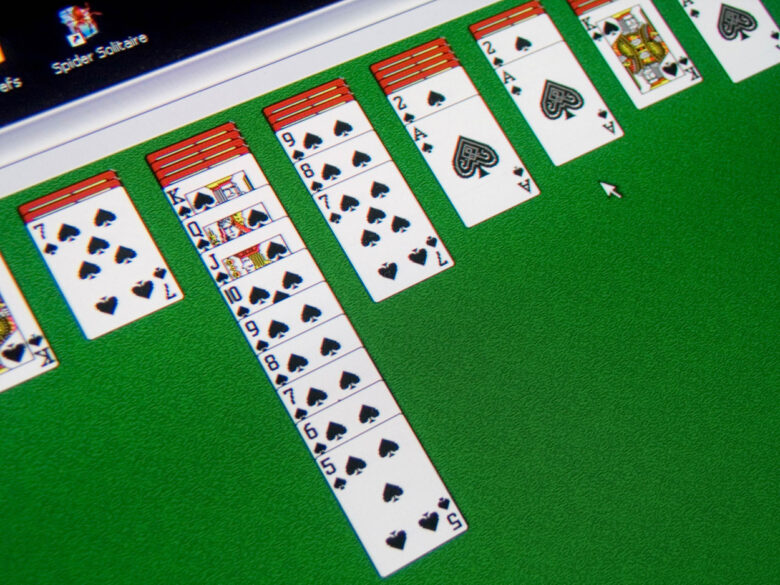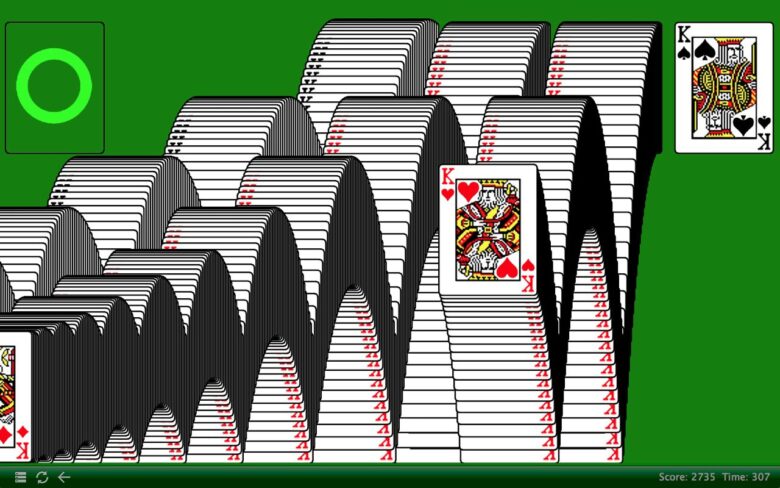Solitaire, a classic card game known to many by different names such as Patience in the UK, is a timeless source of entertainment and mental exercise. Whether you prefer the tactile satisfaction of a traditional deck of cards or the convenience of digital gaming, Solitaire caters to both.
Platforms like Subgame provide an outstanding digital Solitaire experience, seamlessly replicating the classic game for your enjoyment. Despite its popularity, many players are unaware of its rich heritage, its multiple variations, and the deep strategic considerations that lie beneath its seemingly simple rules. This article will dive into the fascinating world of Solitaire, its types, rules, and beyond.
Contents
The Origins of Solitaire

Source: sciencetimes.com
Solitaire’s exact origins remain a mystery. Some attribute it to French prisoners during the French Revolution, while others connect it to Scandinavian or Germanic roots. Regardless of its birthplace, Solitaire has evolved into a globally beloved card game, appreciated for its simplicity and soothing solitary nature.
Solitaire: A Myriad of Variations
While the term ‘Solitaire’ typically conjures up a specific card game that people play alone, it is actually a broad category encompassing hundreds of different games, each with its unique rules and strategies. Here are some popular types:
- Klondike Solitaire: Klondike is what most people think of when they hear ‘Solitaire.’ It’s the classic version of the game where seven piles of cards are laid out, with one card facing up and the rest facing down. The goal is to build four stacks of cards in ascending order from Ace to King.
- Spider Solitaire: This variant requires two decks of cards. The objective is to arrange all cards into eight stacks, each of a single suit, in ascending order from King to Ace. The complexity of Spider Solitaire makes it a favorite among Solitaire connoisseurs.
- Freecell Solitaire: Freecell is unique because, unlike many other variations, almost every game is winnable. The game starts with eight piles of cards, all facing up, and four free cells that can be used to temporarily store cards. The objective is similar to the others: create four stacks of cards, each of a single suit, in ascending order.
- Pyramid Solitaire: In this version, the deck is arranged in a pyramid shape, and the goal is to remove all cards from the pyramid by forming pairs that add up to 13.
The Rules of Klondike Solitaire

Source: pinterest
To explore the rules of Solitaire, we’ll focus on the classic version, Klondike Solitaire. In Klondike, you begin with a shuffled deck of 52 cards. The tableau (playing area) is set up with seven piles, with each pile containing one more card than the pile before it. The first pile contains one card, the second pile two cards, and so forth, up to the seventh pile, which contains seven cards. Only the top card of each pile is turned face up; the others are face down.
The rest of the deck is set aside, forming the stock, which can be drawn from later. The goal is to build four foundations (stacks), one for each suit (hearts, diamonds, clubs, and spades), starting with the Ace and ending with the King.
Gameplay begins by moving cards between the piles on the tableau, with the aim of revealing the face-down cards. On the tableau, cards must be stacked in descending order and with alternating colors. For example, you can place the black 9 of clubs on the red 10 of hearts. When you uncover a face-down card, you flip it face up.
The stock is used when there are no more legal moves on the tableau. Depending on the rules you’re playing by, you can flip through the stock one or three cards at a time, placing them on the waste pile. You can move the top card of the waste pile to the tableau or the foundations.
When you manage to move an Ace to the foundations, you can then start stacking cards of the same suit in ascending order on top of it. The game is won when all cards are on the foundations, each stack going from Ace to King.
Beyond the Rules: Strategies and Tips
While Solitaire’s rules are simple, winning requires strategy and foresight. Some helpful tips include:
- Always move an Ace or Deuce to the foundation whenever possible. This opens up play and gets you closer to victory.
- Play from the tableau first. Doing so can reveal more cards and create more options for play.
- Empty tableau columns are more powerful than free cells. They can be filled with sequences instead of single cards, providing more opportunities for strategic play.
- Always try to turn over the cards on the tableau as soon as possible. This will give you more options to customize your strategy.
Solitaire and Cognitive Development

Source: sloanreview.mit.edu
Solitaire is not just a game; it’s a mind gym. It can play a significant role in cognitive development and maintaining mental sharpness. This seemingly simple card game requires substantial logical reasoning, strategic planning, and problem-solving skills. As players analyze potential moves and forecast the results of their actions, they stimulate the parts of the brain responsible for logic and planning.
Moreover, the necessity to remember the placement of cards and predict future possibilities aids in enhancing memory and concentration. Research even suggests that such brain-stimulating activities can contribute to delaying the onset of dementia and other age-related cognitive disorders.
In a nutshell, Solitaire offers an enjoyable method to exercise your brain muscles, challenge your logical thinking, and stimulate memory, all while providing entertainment.
The Endgame: Embracing the Allure of Solitaire
Solitaire’s charm lies in its accessibility, depth, and cognitive benefits. Its rules can be learned in minutes, yet mastering the game takes a lifetime. Whether you’re a beginner or an experienced player, there is always a new challenge to be found in the versatile world of Solitaire. So, why not pick up a deck and deal a game today? By doing so, you’re not
only entertaining yourself but also honing your cognitive skills. Solitaire is more than a game; it’s a journey of logical challenges, a subtle tutor for strategic thinking, and a nurturing companion for mental fitness. Embrace the allure of Solitaire, and let the journey unfold.
